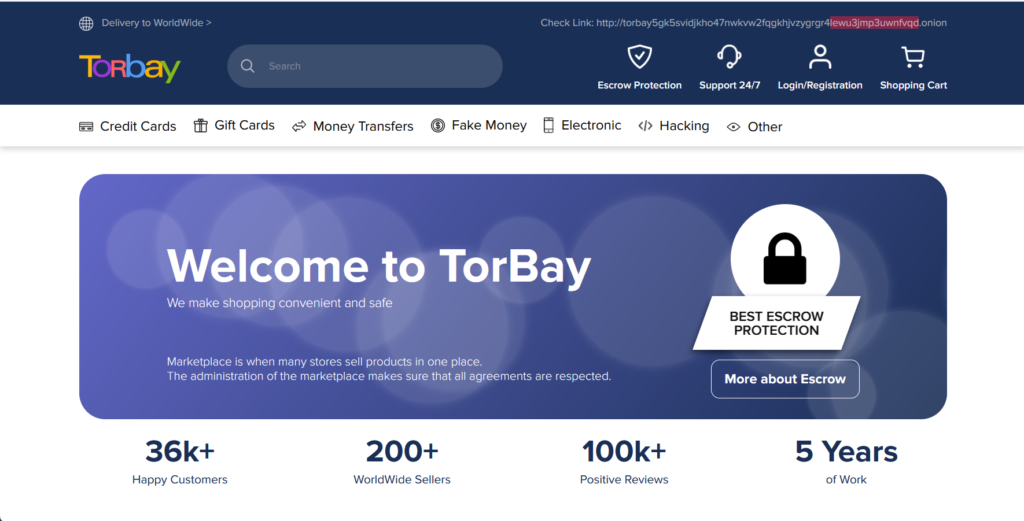Table of Contents
ToggleTorbay – TOR Scam Report (1)
Onion Link: http://torbay5gk5svidjkho47nwkvw2fqgkhjvzygrgr4lewu3jmp3uwnfvqd.onion
Scam Report Date: 2024/08/08
Client Scam Report Breakdown
Original Report Summary:
The client reported paying $249 to a vendor on a marketplace site for a WhatsApp hacking service. Despite making the payment and attempting to contact the vendor, the client has been unable to receive any service or response. This site uses various tactics to attract customers, including promoting vendor credibility through the appearance of reviews, sales numbers, and “escrow protection,” which is a mechanism typically used to secure payments until both parties are satisfied with the transaction. However, as noted in the scam report, these mechanisms proved ineffective, and once the client deposited funds, communication ceased, indicating a fraudulent operation.
Escrow Service and Payment Risks
The concept of “escrow” is frequently used to provide a sense of security to customers on various marketplaces. In theory, funds placed in escrow are held by a third party and only released when both the buyer and seller confirm a successful transaction. Here, the report reveals that the promised escrow service did not function as advertised. Despite the marketplace’s claims of “best escrow protection,” the funds appear to have disappeared, with no way for the client to retrieve them. This is a common tactic used on scam sites to reassure users with false protections, enticing them to deposit funds with the illusion of a secure transaction process. As the report states, when the customer attempted to seek a resolution, the site’s messaging service failed, further isolating the user from any means of recourse.
Terminology and Red Flags
The scam report highlights several red flags: first, the lack of a functional messaging service and second, the abrupt cessation of customer support after the initial follow-up. Fraudulent platforms often showcase terms such as “24/7 Support” and “Escrow Protection” to present an image of a secure, customer-centered platform. However, these terms are only superficial, and any attempt to engage customer support usually results in a lack of response, as seen here. Terms like “fast delivery” and “secure escrow” are common on scam sites to provide the illusion of a legitimate service, but without reviews from verified users, policies for disputes, or transparent customer service channels, such claims should be regarded with skepticism.







